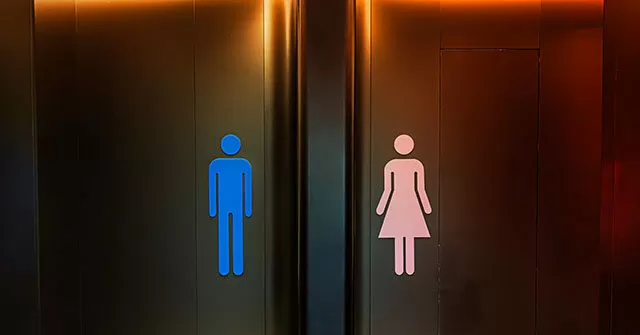In a move to protect the safety and privacy of women, two states in the United States have recently passed legislation that bars transgender individuals from using women’s public bathrooms. The bills, which have been met with both support and criticism, were passed in Tennessee and New Hampshire, with one bill already on its way to the governor’s desk to be signed into law.
The passing of these bills has sparked a heated debate across the country, with some arguing that it is a necessary step to safeguard women, while others argue that it is discriminatory towards the transgender community. However, one thing is clear – the intention behind these bills is to protect the rights and well-being of women.
The bill in Tennessee, known as the “Bathroom Bill”, requires individuals to use public bathrooms and locker rooms that correspond with the sex listed on their birth certificate. This means that transgender individuals who have not undergone gender reassignment surgery would be required to use the bathroom that aligns with their biological sex. The bill also allows for businesses to provide single-occupancy bathrooms for those who do not feel comfortable using the designated bathroom.
Similarly, the bill in New Hampshire, called the “Women’s Privacy Act”, also requires individuals to use the bathroom that corresponds with their biological sex. This bill also includes a provision that allows for legal action to be taken against anyone who knowingly enters a bathroom or locker room that does not align with their biological sex.
These bills have been met with strong support from women’s rights groups, who argue that allowing transgender individuals to use women’s bathrooms puts women at risk of sexual assault and invasion of privacy. They believe that women should have the right to feel safe and comfortable in public restrooms and locker rooms, and these bills are a step towards ensuring that.
On the other hand, critics of the bills argue that they are discriminatory towards the transgender community and perpetuate harmful stereotypes. They believe that everyone should have the right to use the bathroom that aligns with their gender identity, and that these bills only serve to further marginalize and stigmatize the transgender community.
However, the passing of these bills in Tennessee and New Hampshire sends a strong message that the safety and privacy of women is a top priority. It is not about discrimination, but rather about protecting the rights of women and ensuring their well-being in public spaces.
Furthermore, these bills do not prevent transgender individuals from using public bathrooms altogether. They simply require them to use the bathroom that aligns with their biological sex, or provide alternative options for those who do not feel comfortable doing so. This is a fair compromise that takes into consideration the concerns of both sides.
In a statement, Tennessee Governor Bill Lee expressed his support for the bill, stating that “women and girls should feel safe in public restrooms, and this bill will help ensure that they do.” Similarly, New Hampshire Governor Chris Sununu also showed his support for the bill, stating that “the privacy and safety of women and children must be protected.”
In conclusion, the passing of these bills in Tennessee and New Hampshire is a positive step towards safeguarding the rights and well-being of women. It sends a clear message that their safety and privacy is a top priority, and that steps will be taken to ensure that. While there may be differing opinions on the matter, it is important to remember that the intention behind these bills is to protect women, and that is something that should be celebrated.


